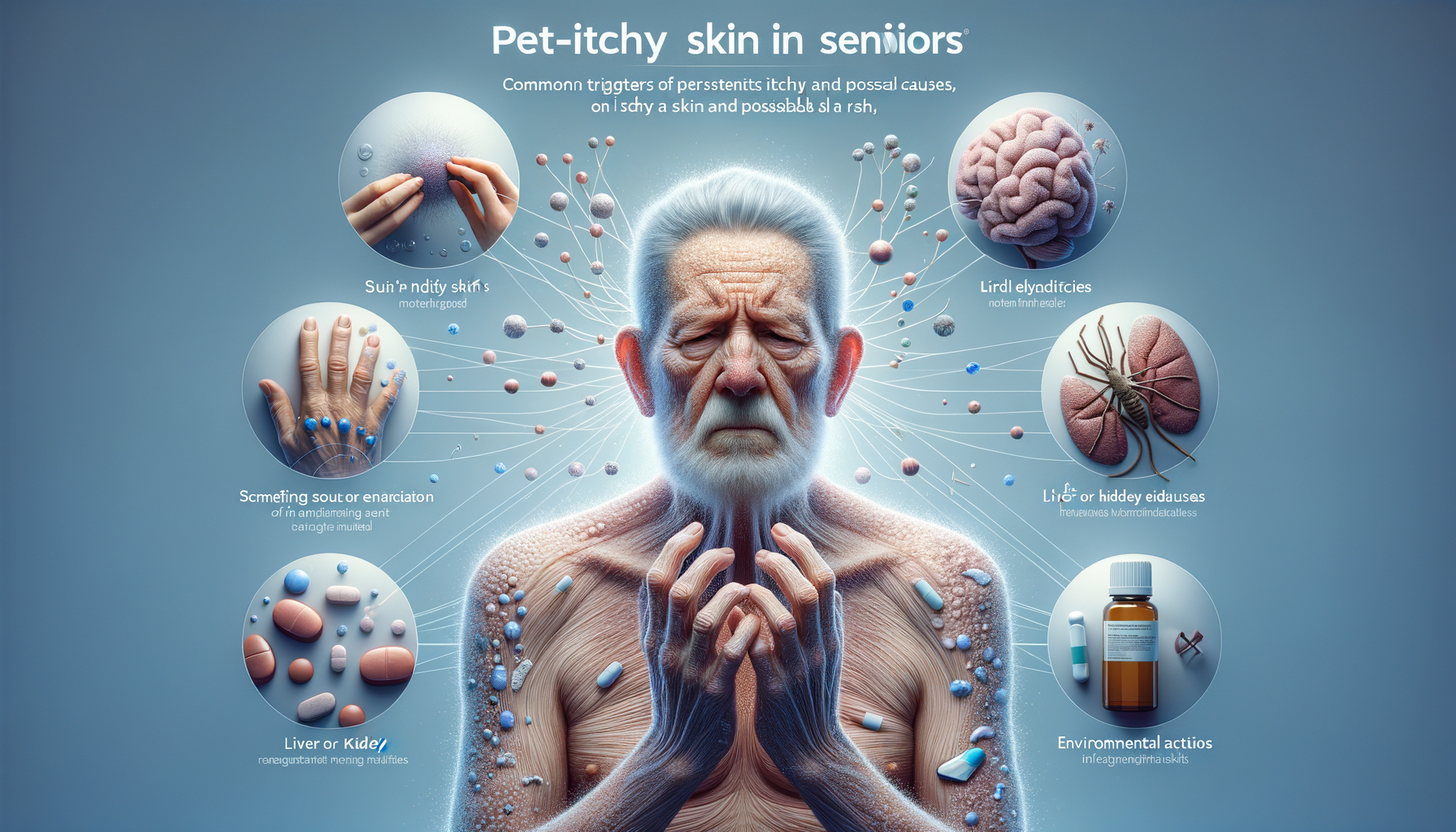What Are The Causes Of Persistent Itchy Skin In Seniors Without A Rash?
Could an unseen culprit be the source of that relentless urge to scratch? Experiencing persistent itchiness, especially later in life, can be a perplexing sensation when no visible rash appears. Exploring potential underlying factors might shed light on this discomfort.

Common Causes Of Persistent Itchy Skin In Seniors Without A Rash
Itchy skin can be particularly bothersome when it occurs without any visible rash, leaving many seniors puzzled about the cause. Several factors can contribute to this condition, and understanding them is crucial for finding relief. One of the primary causes is dry skin, which becomes more prevalent with age due to a decrease in natural oils. Additionally, certain medications often prescribed to older adults can lead to itchiness as a side effect. Environmental factors, such as low humidity levels, can exacerbate the issue, especially during colder months.
Another significant cause is the natural aging process itself. As we age, our skin undergoes various changes, including a reduction in the production of collagen and elastin, leading to thinner and more fragile skin. This makes it more susceptible to irritation and itchiness. Furthermore, underlying medical conditions, such as diabetes or kidney disease, can also manifest as itchy skin without a rash.
It’s essential for seniors experiencing persistent itchiness to consult with healthcare providers to identify the root cause and receive appropriate treatment. This can involve lifestyle changes, such as increasing skin hydration and using gentle skincare products, as well as medical interventions if necessary.
How Aging Affects Skin Leading To Persistent Itchiness In Seniors
The aging process brings about numerous changes in the body, and the skin is no exception. Over time, the skin loses its ability to retain moisture, resulting in dryness and increased sensitivity. This is primarily due to a decline in sebaceous gland activity, which reduces the skin’s natural oil production. Consequently, seniors often experience a sensation of tightness and itchiness, even in the absence of a rash.
Moreover, the structural integrity of the skin diminishes with age. The dermal layer, which provides strength and elasticity, becomes thinner, making the skin more prone to irritation from external factors. This thinning is accompanied by a decrease in blood flow to the skin, further impairing its ability to heal and regenerate. As a result, even minor irritants can trigger persistent itchiness.
To mitigate these effects, seniors can adopt skincare routines that focus on maintaining moisture and protecting the skin barrier. This includes using moisturizers with emollients and humectants, avoiding harsh soaps, and wearing protective clothing in extreme weather conditions. These measures can help reduce the impact of aging on the skin and alleviate the discomfort associated with itchiness.
Treatments For Persistent Itchy Skin In Seniors Without A Rash
Addressing persistent itchy skin in seniors requires a comprehensive approach that considers both lifestyle modifications and medical treatments. One of the first steps is to ensure adequate hydration of the skin. This can be achieved by applying moisturizers regularly, especially after bathing, to lock in moisture. Products containing ingredients like ceramides and glycerin are particularly beneficial for maintaining skin hydration.
In addition to topical treatments, lifestyle changes can play a significant role in managing itchiness. Seniors should aim to maintain a balanced diet rich in essential fatty acids, which support skin health. Staying hydrated by drinking plenty of water is also crucial, as it helps keep the skin supple from the inside out.
For those whose itchiness persists despite these measures, consulting a healthcare professional is advisable. They may recommend treatments such as antihistamines or prescription creams to alleviate symptoms. In cases where an underlying medical condition is identified as a cause, addressing that condition can lead to significant improvements in skin comfort.
Ultimately, a tailored approach that considers individual needs and circumstances is key to effectively managing persistent itchy skin in seniors without a rash.